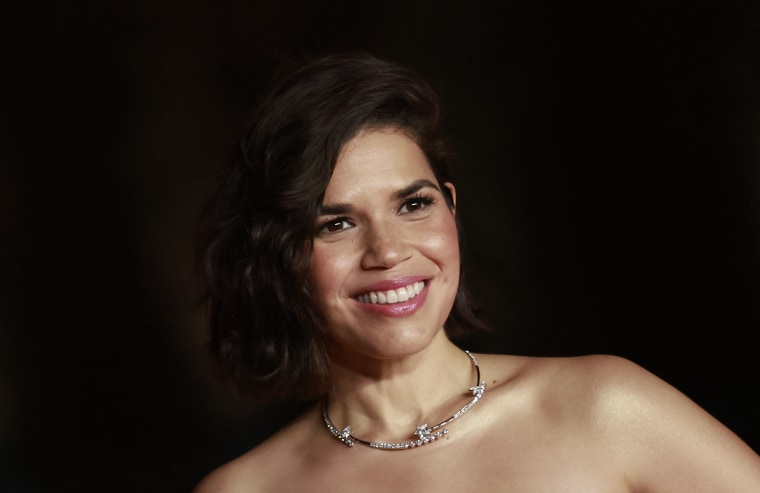Oscar nominations are notorious for the surprises and snubs that may not align with fan opinions and awards season trends. This year, one of the biggest surprises was a best supporting actress nomination for America Ferrera in "Barbie," her first after a decadeslong career focused on uplifting the voices of young Latinas.
Ferrera delivered one of the year’s most memorable monologues in her role as Gloria, a Mattel employee with an imagination so expansive it summons Barbie to the real world. Movie fans around the world reacted with awe, and sometimes criticism, at the 2 ½- minute speech that relayed the baggage that comes with simply existing as a woman in the world.
“You have to never get old. Never be rude, never show off, never be selfish, never fall down, never fail, never show fear, never get out of line. It’s too hard. It’s too contradictory. ... And it turns out, in fact, that not only are you doing everything wrong, but also everything is your fault!” Gloria tells her daughter and a group of Barbies.
In some ways, Ferrera’s path to the biggest nomination of her career reflects many of the themes she espoused in Gloria’s monologue.
The speech had been divisive from the start, with some saying the monologue simplified feminism too much to merit acclaim. Others said it represented a career that made Ferrera the perfect messenger to describe the foundational contradictions of being a woman. When the nomination was finally announced, a similar back and forth ensued on social media about whether the actress had done enough in her role.
“I’m just so tired of watching myself and every single other woman tie herself into knots so that people will like us,” Gloria says in the speech.
Ferrera was nominated Tuesday morning alongside her “Barbie” co-star Ryan Gosling, who received an expected nod in the best supporting actor category. Fans were quick to point to the irony of Ken receiving a nomination over Barbie.
Notably, the film didn't secure nominations for Greta Gerwig in the directing category and Margot Robbie in a leading role, two notable snubs that some fans felt were more deserving than Ferrera, who had not been nominated for many major awards before the Oscars. Gerwig did receive a nomination for best adapted screenplay, and Robbie was recognized as a producer for the film’s best picture nomination.
Since Ferrera's debut in the 2002 indie cult classic "Real Women Have Curves" — a rare feature film written and directed by Latinas — Ferrera has become known for her portrayals of characters that are ambitious, creative and natural-born leaders.
In "Ugly Betty," she portrayed an aspiring Mexican American journalist who would do anything to break into a historically male and white industry. Her character endured humiliations on screen that many Latinas understood — such as being mocked by her peers for her clothes, where she graduated from college and where her family lived. Still, Betty proudly wore her identity on her sleeve, bringing empanadas to work and sporting her now infamous Guadalajara poncho as a fashion symbol.
Her role as Betty Suarez was met with critical acclaim and earned Ferrera a Golden Globe and a Screen Actors Guild Award. She also became the first (and to this day, only) Latina to win the Emmy for outstanding lead actress in a comedy series.
Ferrera also led an ensemble cast alongside Blake Lively, Alexis Bledel and Amber Tamblyn in the beloved coming-of-age film "The Sisterhood of the Traveling Pants." Her character, Carmen, was the emotional center of the film laden with nuances about navigating female friendship and growing up in a mixed-race household.
Many who have followed Ferrera through each of these roles immediately understood why Gerwig chose her to deliver the "Barbie" speech.
It remains to be seen if Ferrera can win over some of her skeptics. She is up against Danielle Brooks, Jodie Foster, Emily Blunt and Da’Vine Joy Randolph, who have all received widespread acclaim for their performances.
While she is one of only two Latino actors nominated this year (Colman Domingo received a best actor nomination for his role in "Rustin"), her recognition comes just two years after Ariana DeBose became the first queer Afro Latina to win in the best supporting actress category.
For more from NBC Latino, sign up for our weekly newsletter.

